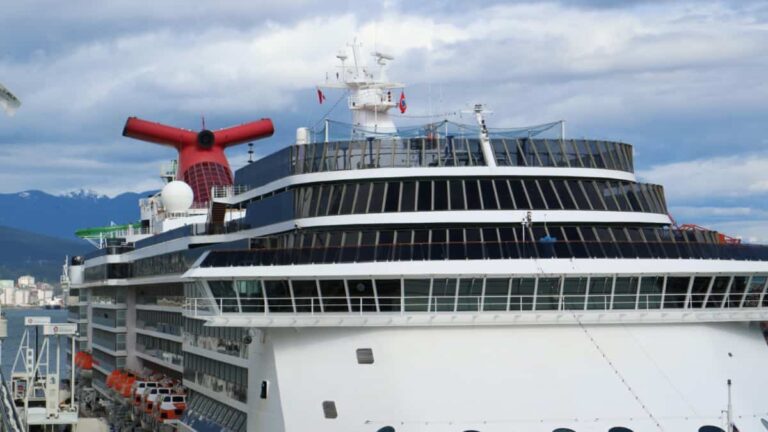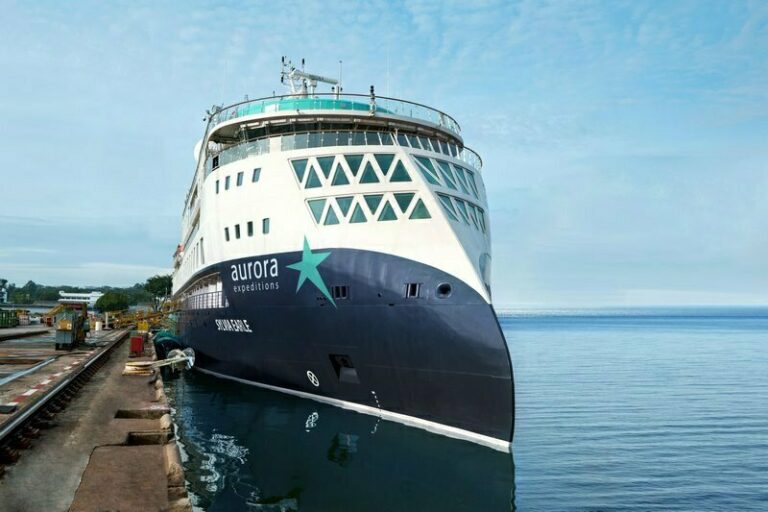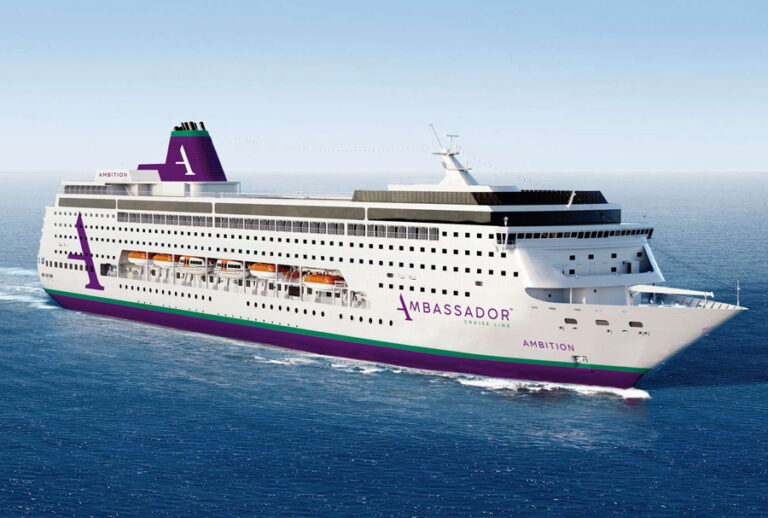Is Your Cruise Ship Prepared For A Medical Emergency?
Picture yourself on a luxurious cruise ship, sailing through the open sea, enjoying the stunning views and indulging in the finest cuisine and entertainment. As you relax on deck, soaking up the sun, have you ever wondered if your cruise ship is truly prepared for a medical emergency? With the rising popularity of cruises, it is crucial to ensure that these floating cities are equipped to handle any unforeseen medical situations that may arise. In this article, we will explore the importance of cruise ship preparedness and why it should be a top priority for both passengers and cruise lines alike.

Medical Facilities and Equipment
Qualified Medical Personnel on Board
When you’re on a cruise ship, it’s important to know that there are qualified medical personnel available to provide immediate care in case of a medical emergency. These professionals are trained to handle a wide range of medical conditions and are equipped to provide the necessary treatment onboard. Having qualified doctors, nurses, and other medical staff on board ensures that you will receive prompt and appropriate medical attention whenever needed.
Fully Equipped Medical Center
Cruise ships have fully equipped medical centers that are designed to handle a variety of medical emergencies. These medical centers are usually equipped with state-of-the-art equipment and technology to provide an extensive range of medical services. From basic medical supplies to more advanced diagnostic equipment, the medical centers are well-stocked to handle a wide range of medical situations. Rest assured that these medical centers are prepared to handle emergencies and ensure that you receive the care you need.
Medical Equipment and Medications
In addition to qualified medical personnel and fully equipped medical centers, cruise ships are also equipped with a range of medical equipment and medications. These include items such as defibrillators, oxygen tanks, ECG machines, and much more. These medical equipment and medications are essential for providing immediate care in case of a medical emergency, ensuring that the ship is well-prepared to handle any situation that may arise.
Availability of Oxygen and Defibrillators
Oxygen and defibrillators are crucial in emergency situations, and cruise ships understand the importance of having these readily available. Oxygen is vital for patients experiencing respiratory distress, while defibrillators can be life-saving in cases of cardiac arrest. Having these resources readily accessible onboard ensures that immediate care can be provided to individuals in need. Rest assured, cruise ships prioritize the availability of such vital equipment to ensure your safety and well-being.
Emergency Response Team and Communication
Trained Emergency Response Team
Cruise ships have trained emergency response teams that are prepared to handle various emergencies at sea. These teams consist of trained professionals, including medical staff, who are well-versed in emergency protocols and procedures. They undergo regular training and drills to ensure their readiness to respond effectively in any emergency situation. With the expertise and coordination of these emergency response teams, you can have peace of mind knowing that you’re in capable hands.
Accessible Communication Systems
Effective communication is crucial during emergencies, and cruise ships understand this need. They have accessible communication systems in place to facilitate quick and efficient communication between the emergency response teams, medical personnel, and other relevant personnel onboard. These systems ensure that information can be relayed promptly, enabling swift response and coordination in providing the necessary medical care.
Emergency Drills and Training
To ensure preparedness, cruise ships conduct regular emergency drills and training for all crew members, including medical staff. These drills involve simulating various emergency scenarios to practice response protocols and test the efficiency of the emergency response teams. By regularly practicing and refining their emergency response skills, cruise ship crews are well-prepared to handle any unforeseen medical emergencies that may arise onboard.
Coordination with Onshore Medical Professionals
Cruise ships understand the importance of coordinating with onshore medical professionals in case of a medical emergency. This collaboration ensures a seamless transition of care if further medical attention is required beyond what the ship’s medical center can provide. By consulting with onshore medical professionals, cruise ships can ensure that passengers receive the best possible care, even when additional medical expertise is needed.
Medical Evacuation and Onshore Facilities
Arrangements for Medical Evacuations
In rare cases when a passenger’s medical condition requires immediate medical attention onshore, cruise ships have arrangements in place for medical evacuations. These arrangements involve coordinating with local authorities and medical professionals to ensure a swift and safe transfer of the individual to a suitable medical facility on land. These procedures are in place to ensure that necessary medical attention is received as soon as possible when onboard medical resources are insufficient.
Availability of Helipads or Helicopter Transport
Some cruise ships have helipads or facilitate helicopter transport, which can be crucial during medical evacuations. Helicopter transport allows for faster and more efficient transportation, particularly in situations where time is of the essence. Having access to such resources ensures that passengers and crew members can receive immediate medical attention at onshore facilities capable of providing the necessary care.
Accessibility to Onshore Medical Facilities
Cruise ships prioritize accessibility to onshore medical facilities to ensure that passengers and crew members can receive the necessary medical attention, particularly in serious medical emergencies. Collaborating with local medical facilities ensures that quality care is available nearby, should it be required. Cruise ship staff will assist in facilitating a seamless transfer and ensure that individuals receive appropriate care and support from onshore medical professionals.
Collaboration with Local Emergency Services
Cruise ships also collaborate with local emergency services to ensure a smooth response during medical emergencies. By working closely with local authorities and emergency services, cruise ships can tap into additional medical resources and support if needed. This collaboration ensures that passengers and crew members receive the best possible care and that the necessary logistical support is in place to handle any emergency situation effectively.
Passenger and Crew Health Screening
Pre-Boarding Health Questionnaires
Cruise ships prioritize passenger and crew health screening, starting with pre-boarding health questionnaires. These questionnaires gather crucial information about individuals’ health conditions, recent travel history, and potential exposure to contagious illnesses. By identifying potential health risks before embarking, cruise ships can take necessary precautions and provide appropriate care to passengers and crew members, ensuring a safe and healthy environment onboard.
In-Depth Temperature Screening
Temperature screening is an effective method for identifying individuals with fever, a common symptom of many illnesses. Cruise ships conduct in-depth temperature screening for passengers and crew members before embarkation and throughout the journey to monitor any changes in body temperature. Timely identification of elevated temperatures allows for prompt medical assessment and necessary measures to prevent the spread of contagious diseases onboard.
Monitoring Health Conditions Onboard
Cruise ships have mechanisms in place to monitor the health conditions of passengers and crew members during the voyage. This includes regular temperature checks, symptom monitoring, and medical assessments as required. By proactively monitoring health conditions onboard, cruise ships can promptly identify and address any potential health concerns, ensuring the well-being of everyone onboard.
Isolation Facilities and Quarantine Protocols
Cruise ships are equipped with isolation facilities to manage and contain contagious illnesses effectively. In the event that a passenger or crew member exhibits symptoms of a contagious disease, they can be isolated to prevent the spread of the illness. Cruise ships also have quarantine protocols in place to address situations where a larger-scale outbreak may occur. These measures ensure that the risk of contagion is minimized and that appropriate medical care can be provided to affected individuals.
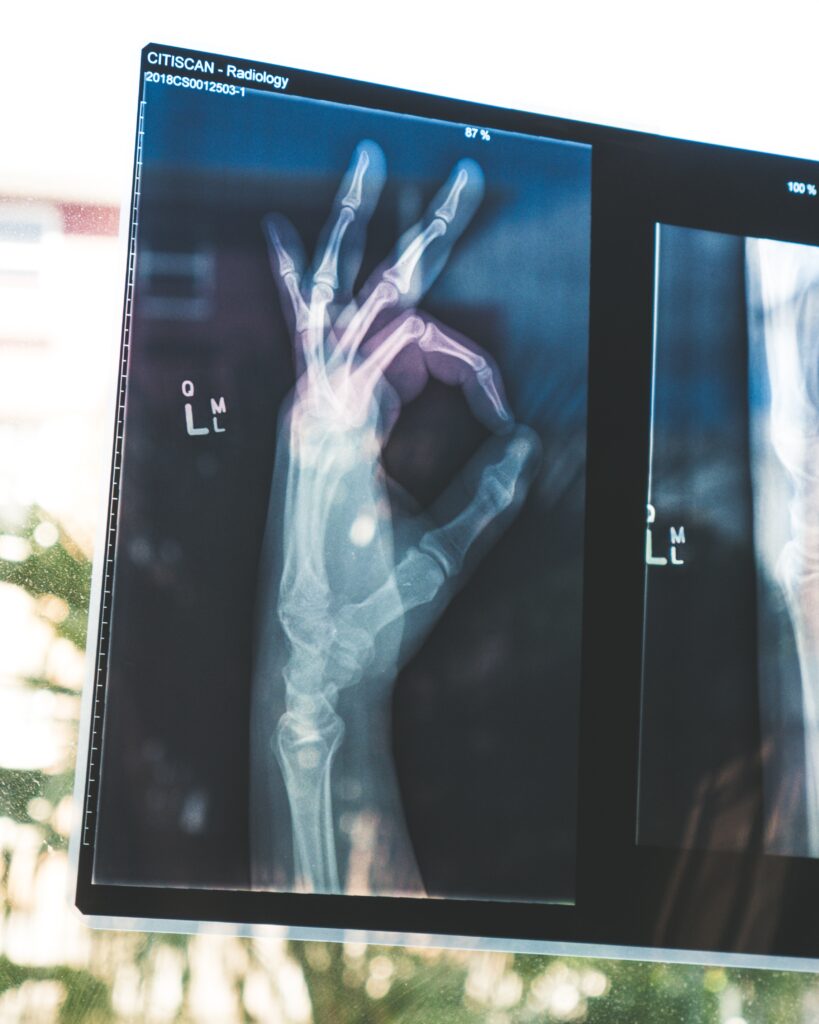
Medical Insurance and Travel Assistance
Insurance Coverage for Medical Emergencies
When embarking on a cruise, it’s essential to have proper medical insurance coverage for any potential medical emergencies. Cruise ships typically require passengers to have travel insurance that includes coverage for medical expenses. This coverage ensures that you have financial protection in case of unexpected medical situations and helps alleviate the burden of medical costs that may arise during your voyage.
Access to Medical Consultants or Advisors
Cruise ships often have access to medical consultants or advisors who can provide guidance and assistance in medical matters. These consultants offer expert advice to the ship’s medical staff, helping ensure the best possible medical care for passengers and crew members. Their expertise contributes to the ship’s overall preparedness and ability to handle medical emergencies effectively.
Onboard Medical Billing and Payment Options
To facilitate the payment process for medical services, cruise ships typically offer onboard medical billing and payment options. This allows passengers and crew members to conveniently settle their medical expenses during the voyage. By providing these payment options, cruise ships make the process easier and more efficient, ensuring that medical care can be readily accessed when needed.
Emergency Medical Repatriation Services
In situations where a medical emergency necessitates repatriation, cruise ships provide access to emergency medical repatriation services. These services help arrange and coordinate the safe and timely return of passengers or crew members to their home countries for further medical care. This ensures that individuals can receive the appropriate medical attention and support in a familiar healthcare system.
Cooperation with Port Authorities and Medical Services
Collaboration with Port Authorities
Cruise ships collaborate closely with port authorities to ensure the safety and well-being of passengers and crew members. This collaboration involves sharing information, adhering to port regulations, and working together to address any medical situations that may arise. By maintaining open lines of communication with port authorities, cruise ships can navigate various port requirements and swiftly access necessary medical support if needed.
Medical Support at Ports of Call
When ships dock at different ports of call, cruise ships prioritize access to medical support services. This includes partnerships with local medical facilities and healthcare providers who can offer medical assistance when required. Cruise ships establish relationships with reliable medical support services at each port to ensure that passengers and crew members can access quality care, should the need arise during their time on land.
Emergency Medical Response Plans
Cruise ships have well-defined emergency medical response plans in place to handle medical emergencies both at sea and in port. These plans outline the necessary steps and procedures to address medical situations swiftly and effectively. By having these plans in place and regularly reviewing and updating them, cruise ships can ensure a coordinated response and the best possible care for individuals in need.
Ensuring Compliance with Local Regulations
Compliance with local regulations is of utmost importance to cruise ships. This includes adhering to medical regulations set by local authorities to ensure the health and safety of passengers, crew members, and the surrounding communities. By working closely with local medical services and authorities, cruise ships ensure compliance with local regulations, further enhancing the level of care and safety onboard.
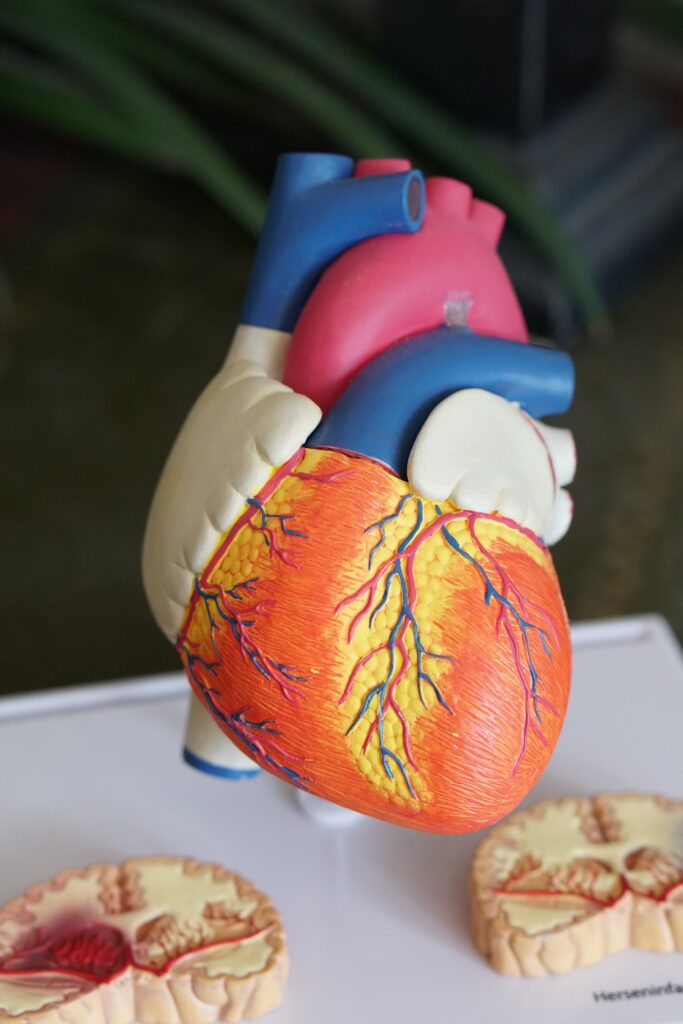
Crisis Management and Contingency Plans
Comprehensive Emergency Response Plans
Cruise ships have comprehensive emergency response plans that cover various scenarios, including medical emergencies. These plans encompass detailed procedures for managing crises and ensuring the safety and well-being of all onboard. From communication protocols to medical resources allocation, these plans outline the necessary steps to be taken during emergencies, providing a framework for effective crisis management.
Crisis Management Team and Training
An integral part of an effective emergency response is the existence of a specialized crisis management team. Cruise ships have dedicated personnel who are specifically trained in crisis management and are responsible for implementing emergency response plans. Training programs ensure that these individuals are well-equipped to handle crises and make informed decisions in high-stress situations. Their expertise and training contribute to the overall preparedness and resilience of cruise ship operations.
Communication Strategies during Emergencies
During emergencies, clear and effective communication is crucial. Cruise ships have well-defined communication strategies in place to ensure that information is swiftly and accurately relayed to all relevant parties. This includes regular updates to passengers, crew members, and external stakeholders, as well as maintaining open lines of communication with onshore medical professionals, port authorities, and emergency services. By employing robust communication strategies, cruise ships can effectively manage emergencies and keep everyone informed and reassured.
Continuity of Care and Support for Passengers
Cruise ships prioritize the continuity of care and support for passengers during medical emergencies. This includes providing necessary medical treatment, facilitating medical evacuations if required, and ensuring ongoing medical support throughout the voyage. Cruise ship medical staff work diligently to ensure that passengers receive continuous care, and they collaborate with onshore medical professionals to provide any necessary follow-up treatment after disembarkation.
Passenger Awareness and Education
Providing Information on Medical Facilities
To ensure passenger awareness and well-being, cruise ships provide information on the available medical facilities and services onboard. This information is typically included in pre-cruise materials and available onboard through various channels. Cruise ships aim to familiarize passengers with the location and accessibility of medical centers and emergency response procedures, promoting a sense of security and confidence in the ship’s preparedness.
Promoting Health and Hygiene Practices
Cruise ships actively promote health and hygiene practices to prevent the spread of illnesses onboard. This includes education on proper hand hygiene, respiratory etiquette, and general sanitation practices. Cruise ships provide hand sanitizing stations throughout the ship and frequently remind passengers and crew members about the importance of these practices. By promoting these habits, cruise ships create a healthier environment for all onboard.
Safety Briefings and Emergency Instructions
To ensure passenger safety, cruise ships conduct safety briefings and provide emergency instructions at the beginning of each voyage. These briefings outline emergency procedures and provide information on what to do in the event of a medical emergency or other crises. By familiarizing passengers with emergency protocols and safety procedures, cruise ships empower individuals to take appropriate action and ensure their well-being during emergencies.
Access to Health Resources Onboard
Cruise ships offer access to health resources onboard to address passengers’ medical needs and concerns. These resources may include medical libraries, informational materials on specific conditions, and access to medical professionals for general health inquiries. By providing access to health resources, cruise ships aim to support passengers in making informed decisions about their health and well-being during their voyage.
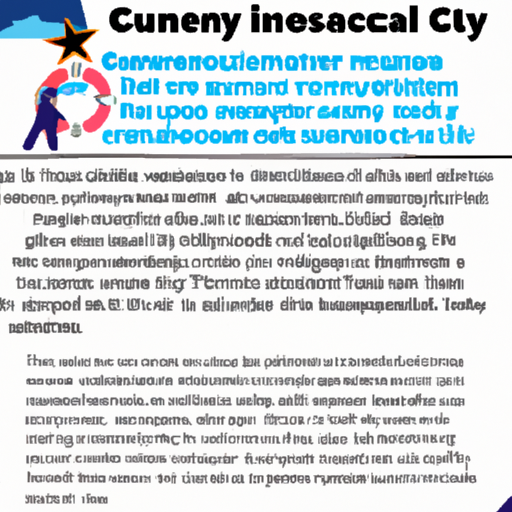
Specialized Medical Services
Availability of Specialty Medical Consultants
Cruise ships recognize the importance of specialized medical services and ensure access to consultants who specialize in various fields of medicine. These consultants can provide expert advice and assistance to the ship’s medical staff when faced with complex or specialized medical cases. By having access to such resources, cruise ships enhance their ability to provide comprehensive medical care that meets the unique needs of passengers and crew members.
Chronic Disease Management
Cruise ships understand the importance of managing chronic diseases for passengers who require ongoing medical care. Medical centers onboard are equipped to provide treatment and support for passengers with chronic illnesses, ensuring continuity of care throughout the voyage. The medical staff on cruise ships work closely with individuals managing chronic conditions, offering medical advice, monitoring, and necessary treatments to ensure their well-being.
Accessible Medical Services for Disabilities
Cruise ships prioritize accessibility and inclusivity by providing medical services that cater to individuals with disabilities. Medical centers onboard are equipped with facilities and resources to accommodate individuals with disabilities and provide appropriate care. Cruise ship medical staff undergo training to ensure that they are knowledgeable and sensitive to the specific needs and challenges of individuals with disabilities, ensuring their comfort and well-being throughout the voyage.
Facilities for Pediatric and Geriatric Care
Cruise ships understand the unique medical needs of both pediatric and geriatric passengers. They provide specialized facilities and resources to cater to these specific age groups. Pediatric and geriatric care onboard may include age-appropriate medical equipment, dedicated medical staff with expertise in caring for these age groups, and specialized treatment options. By offering these facilities, cruise ships ensure that passengers of all ages receive appropriate medical care and attention.
Medical Record Keeping and Privacy
Confidentiality of Patient Information
Cruise ships prioritize the confidentiality of patient information to ensure the privacy of individuals’ medical records. Medical staff adhere to strict confidentiality protocols to protect patient information and maintain the privacy rights of passengers and crew members. By implementing comprehensive privacy measures, cruise ships demonstrate their commitment to maintaining the highest standards of medical ethics and ensuring the trust and confidence of those seeking medical care onboard.
Electronic Health Records Onboard
To streamline medical care and ensure continuity, cruise ships maintain electronic health records onboard. These electronic systems allow medical staff to access and update patient information efficiently. Electronic health records provide a comprehensive view of an individual’s medical history and treatment, ensuring that the appropriate care can be provided in a timely manner. This integration of technology supports efficient and effective medical care during your cruise.
Accessibility of Medical Histories
Cruise ships ensure the accessibility of medical histories to effectively manage medical emergencies and support patients’ ongoing medical needs. By having access to individuals’ medical histories, cruise ship medical staff can make informed decisions regarding treatment plans and medications, ensuring that the care provided aligns with their specific health needs. The accessibility of medical histories enhances the quality and continuity of medical care throughout the voyage.
Transfer of Medical Records
In situations where individuals require ongoing medical care beyond the duration of their cruise, cruise ships facilitate the transfer of medical records to onshore healthcare providers. This transfer ensures that the receiving medical professionals have access to accurate and up-to-date medical information, enabling them to continue providing appropriate care. By facilitating the transfer of medical records, cruise ships prioritize the continuity of care and support for passengers beyond the voyage.
In conclusion, cruise ships understand the importance of being well-prepared for medical emergencies. From qualified medical personnel and fully equipped medical centers to advanced medical equipment and collaboration with onshore medical professionals, cruise ships take numerous measures to ensure the safety and well-being of passengers and crew members. Through comprehensive crisis management plans, passenger awareness and education, and specialized medical services, cruise ships strive to provide a safe and enjoyable experience for all onboard while prioritizing the provision of excellent medical care.



